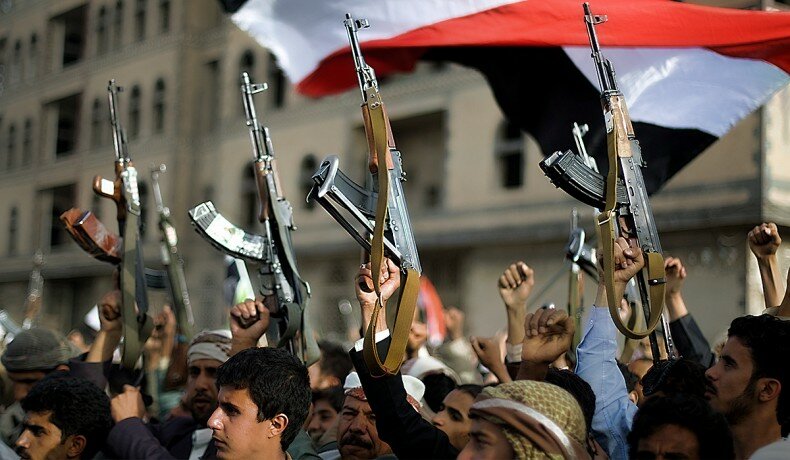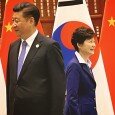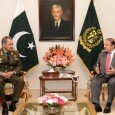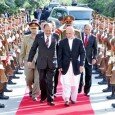By Muhammad Amir Rana –
Maintaining a balanced relationship with Saudi Arabia and Iran has always been a tricky task for Pakistan
Saudi Arabia is consistent in its diplomatic pursuit in Pakistan. Despite facing some failure both on public and formal diplomatic fronts, it is still hopeful that Pakistan will join the Saudi-led military campaign in Yemen.
 Pakistan has many reasons to avoid becoming part of that campaign which range from regional to religious and sectarian implications for the country. Different diplomatic approaches employed by Riyadh and Islamabad were an important factor behind the failure of Saudi efforts to influence Pakistan. Here is a review of the approaches which both countries are trying to make compatible.
Pakistan has many reasons to avoid becoming part of that campaign which range from regional to religious and sectarian implications for the country. Different diplomatic approaches employed by Riyadh and Islamabad were an important factor behind the failure of Saudi efforts to influence Pakistan. Here is a review of the approaches which both countries are trying to make compatible.
Sectarian element in public diplomacy: The sectarian view of the Saudis holds a central place in defining their bilateral and strategic relations with the Muslim countries. Countries like Pakistan, which are in a process of democratic transition and where sectarian tendencies have not yet encroached into national political discourse, face a dilemma in their relations with Saudi Arabia.
Pakistan’s political parties have different sectarian credentials and may look towards Riyadh differently when in power. The Saudis’ views about the previous government of Pakistan People’s Party (PPP) and its leadership are not a secret. The Saudis did not hide their feelings towards ‘Shia and Iran-friendly’ government of the PPP and refused to supply oil on deferred payments. The cut in oil supplies had worsened the economic crisis in Pakistan during the PPP government.
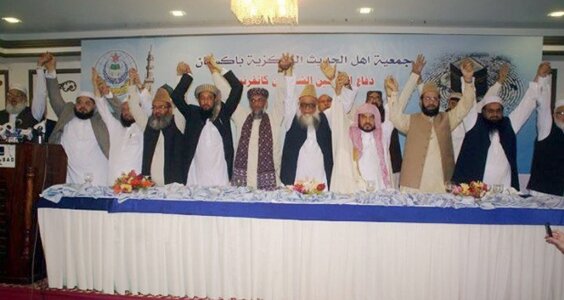 On public diplomacy front, Saudi Arabia mainly depends on Ahl-e-Hadith and sectarian Deobandi organisations, to whom it also provides financial support.
On public diplomacy front, Saudi Arabia mainly depends on Ahl-e-Hadith and sectarian Deobandi organisations, to whom it also provides financial support.
No doubt, the pro-Saudi religious groups have expanded their outreach inside Pakistan. Heavy financial and ideological investment by the Saudis, it is claimed, created for Riyadh the political support base in Pakistan. But those groups, which openly support the kingdom’s version, do not have much control over the religious discourse of the country. They are not in a position to dictate to the government in favour of the Saudis. This scenario indicates that multiple sectarian contentions are increasing, which will make the religious discourse in the country more complex and perhaps more volatile.
Strategic and diplomatic pursuit: On the other hand, Saudis are on a diplomatic offensive to influence their close allies including Pakistan and would not allow them to hold a neutral position over the Middle East crisis. As Saudis need some immediate results, their frustration is growing over the failure of public diplomacy in Pakistan. Ultimately, it will increase their dependence on strategic pursuit.
 The Saudis have deep influence inside Pakistan’s state institutions and have gradually been encroaching into spaces that impact public spheres. Saudi Arabia is among the three countries that have had an important place in Pakistan’s foreign policy determinants. Compared to Saudis, the U.S. and China enjoy less privilege in Pakistan although they also have an influence over the latter’s internal political and military issues. The Saudis have at times played a mediatory role in resolving the civil-military and other political crises in Pakistan.
The Saudis have deep influence inside Pakistan’s state institutions and have gradually been encroaching into spaces that impact public spheres. Saudi Arabia is among the three countries that have had an important place in Pakistan’s foreign policy determinants. Compared to Saudis, the U.S. and China enjoy less privilege in Pakistan although they also have an influence over the latter’s internal political and military issues. The Saudis have at times played a mediatory role in resolving the civil-military and other political crises in Pakistan.
It is not difficult to understand how the Saudi influence increased in Pakistan. Though historically Pakistan has tried to keep a balanced relationship with the Middle Eastern states, especially with Iran and Saudi Arabia, its tilt towards Riyadh started after military dictator General Ziaul Haq took over the government. However, Pakistan had tried to avoid any confrontation with Iran at the cost of its warm relations with Saudi Arabia. But maintaining a balanced relationship with the two countries has always been a tricky task.
 However, the current situation is different and despite Pakistan’s policy statement of neutrality over Yemen, the Saudi government is still hopeful that ultimately Pakistan will become their partner in the Yemen venture. Even the United Nations resolution on Yemen for peaceful resolution of the conflict is not helping Pakistan to use it as cover and maintain its neutral position. The support of the Gulf Cooperation Council (GCC) and other African and Asian countries and also the U.S. and Western allies of Pakistan for the Saudis’ venture in Yemen is putting more pressure on Pakistan.
However, the current situation is different and despite Pakistan’s policy statement of neutrality over Yemen, the Saudi government is still hopeful that ultimately Pakistan will become their partner in the Yemen venture. Even the United Nations resolution on Yemen for peaceful resolution of the conflict is not helping Pakistan to use it as cover and maintain its neutral position. The support of the Gulf Cooperation Council (GCC) and other African and Asian countries and also the U.S. and Western allies of Pakistan for the Saudis’ venture in Yemen is putting more pressure on Pakistan.
The resumption of the Saudi air strikes after a one-day break and Pakistan’s civil and military leadership’s visit to Riyadh suggests that decision makers in Islamabad have little time to respond to the challenge of keeping balance in Pakistan’s diplomatic and strategic balance with Muslim world.
![]() The writer is prominent defence analyst and heads Pakistan Institute of Peace Studies (PIPS)
The writer is prominent defence analyst and heads Pakistan Institute of Peace Studies (PIPS)





















































































